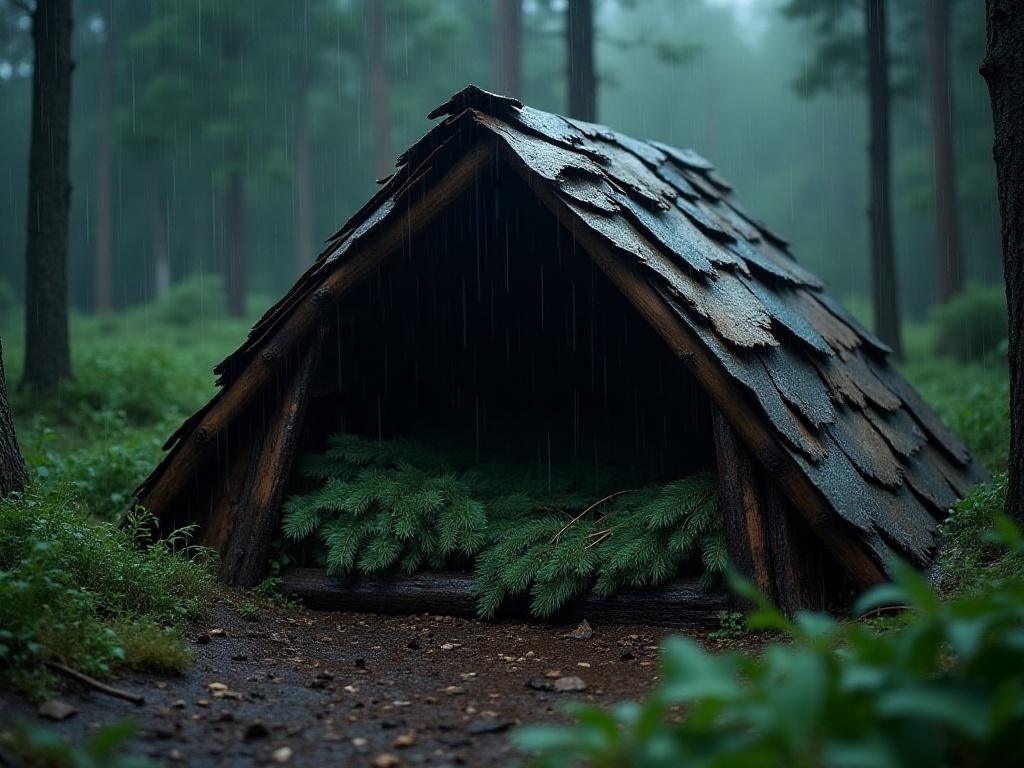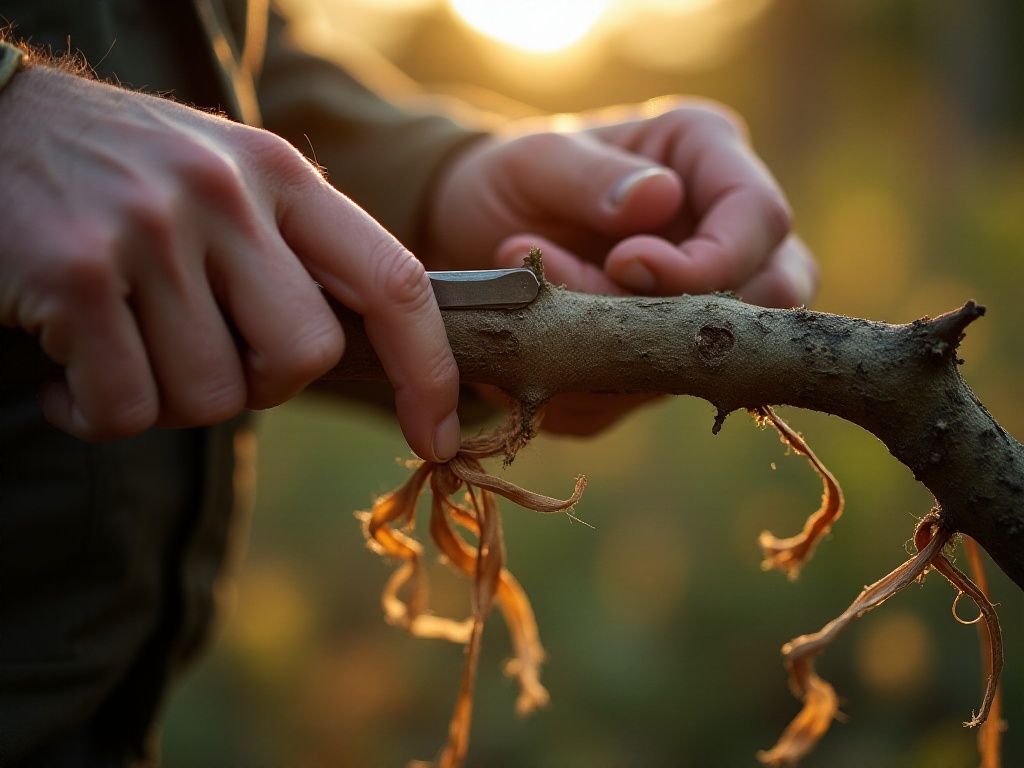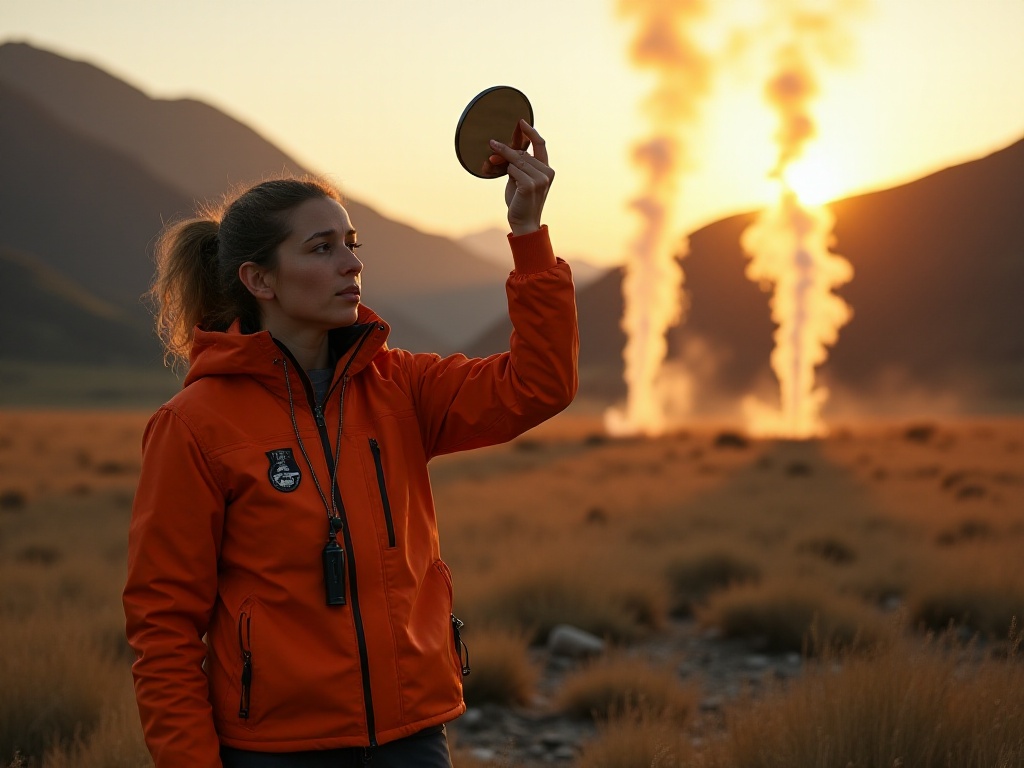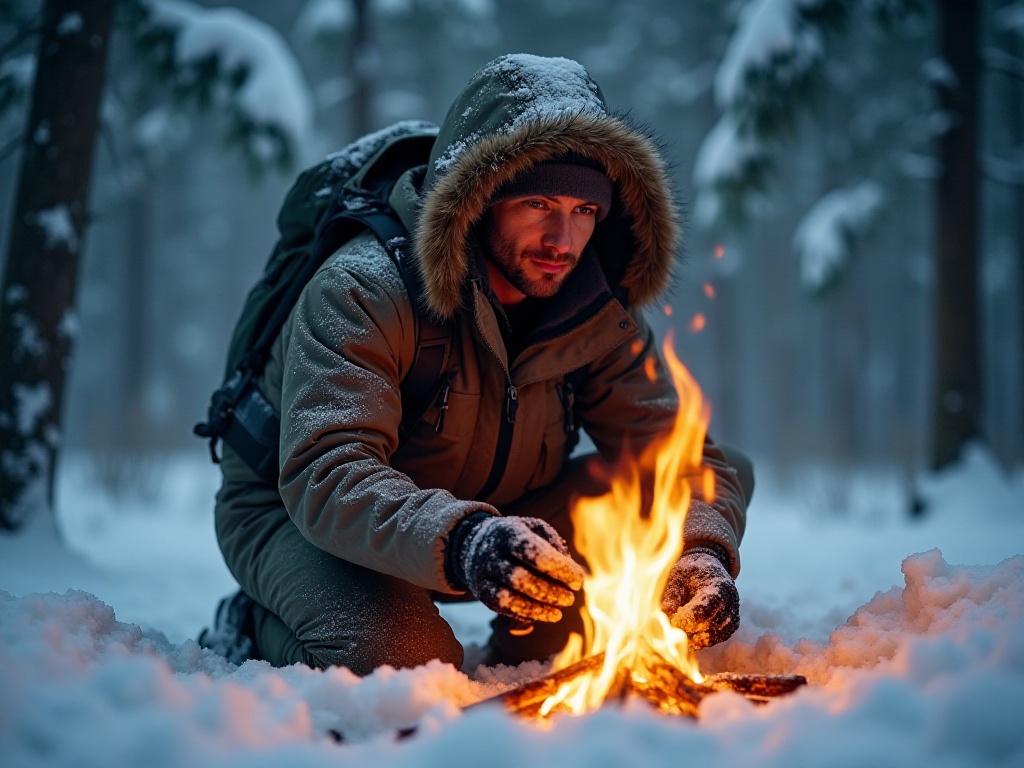Introduction
To be honest, I never thought I would attend an outdoor survival training camp. As an urban youth who rarely even visits parks, this experience really opened my eyes. Before attending the training camp last month, I had no idea what equipment was needed for outdoor survival. But after this learning experience, I not only learned how to choose gear but more importantly understood that in the wilderness, proper equipment can truly save lives.
Shopping Experience
On the first day of training camp, our instructor told us a thought-provoking true story. Last summer, a young person about my age went hiking in the mountains alone. They planned to return the same day but got lost due to unfamiliarity with the terrain and sudden weather changes. Although they were eventually rescued safely, those three days and two nights were a nightmare: covered in insect bites, hungry and thirsty, and nearly dehydrated.
The instructor said this hiker's experience wasn't unusual. Every year, many people encounter dangers in the wilderness due to insufficient preparation. Many think outdoor gear is very expensive, often costing tens of thousands of yuan. But actually, with careful planning, you can get basic survival equipment for around 2000 yuan.
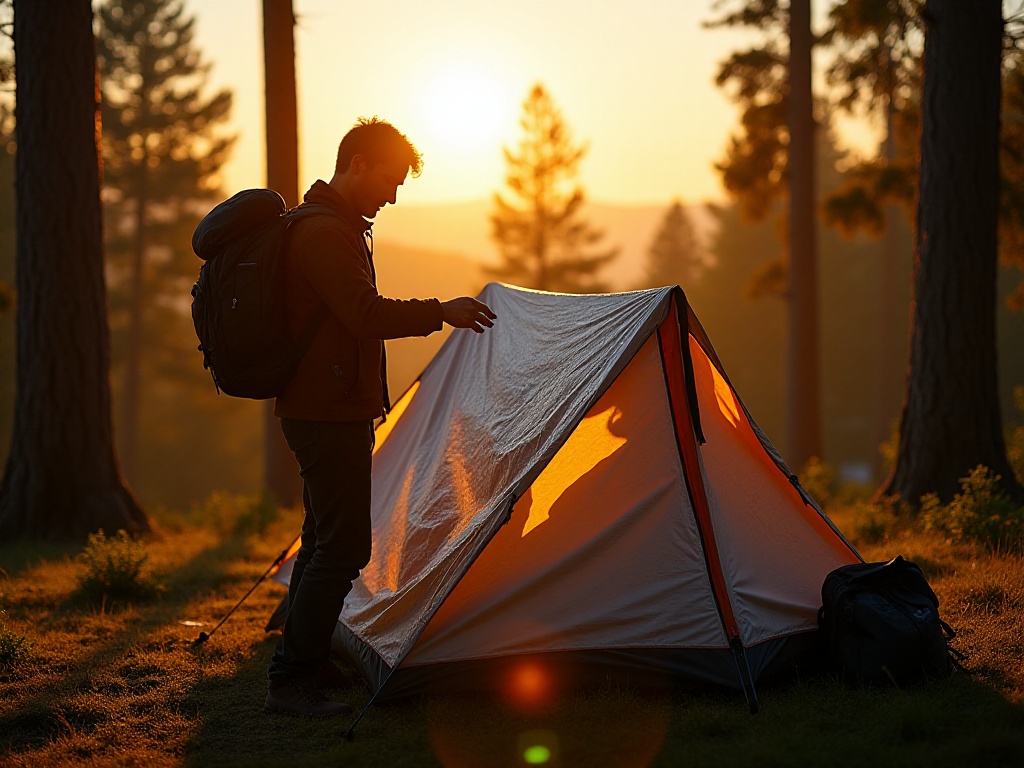
Essential List
When it comes to outdoor gear, the most important items are the trio of backpack, tent, and sleeping bag. These are fundamental for wilderness survival, and selection must be careful.
I bought my backpack on Taobao, 40L capacity, for 280 yuan. The selection process was quite agonizing, comparing specifications and reading reviews. Choosing this capacity was carefully considered: 20L is too small to fit basic equipment; 60L is too large for beginners, making it tiring to carry and easy to overload. What attracted me most about this backpack was its water-resistant material, with specially treated surfaces that quickly repel water. Nevertheless, I still bought a rain cover, since wilderness weather is unpredictable and extra protection is always good.
The instructor particularly emphasized that items in the backpack must be waterproofed. He often saw newcomers' spare clothes get completely wet during camping. That feeling is devastating, having no dry clothes in cold weather. So now I always put important items in waterproof bags before putting them in the backpack, providing double protection.
The tent was my biggest expense in this set of equipment, costing 800 yuan. Although it's a two-person tent, with the backpack and other equipment inside, the space is just right. When selecting, I paid special attention to the waterproof rating, which needed to be above 2000mm. What does this mean? Simply put, the tent won't leak in heavy rain. The weight is controlled within 2.5kg, not too heavy to carry. Honestly, I initially thought 800 yuan was expensive for a tent, but after using it, I found it worth the price. It's very simple to set up, taking one person only 5 minutes, and it's truly windproof and rainproof, making for very peaceful sleep at night.
I chose a 400 yuan three-season sleeping bag, rated for -5°C to 15°C. This temperature range is completely sufficient for spring and autumn. When selecting the sleeping bag, I paid special attention to the filling material. The one I chose uses duck down filling, which provides excellent warmth, compresses to a small size, and is easy to pack. I remember the first time I used it, the temperature dropped to around 8 degrees at night, but I slept very comfortably wearing just a thin shirt inside the sleeping bag.
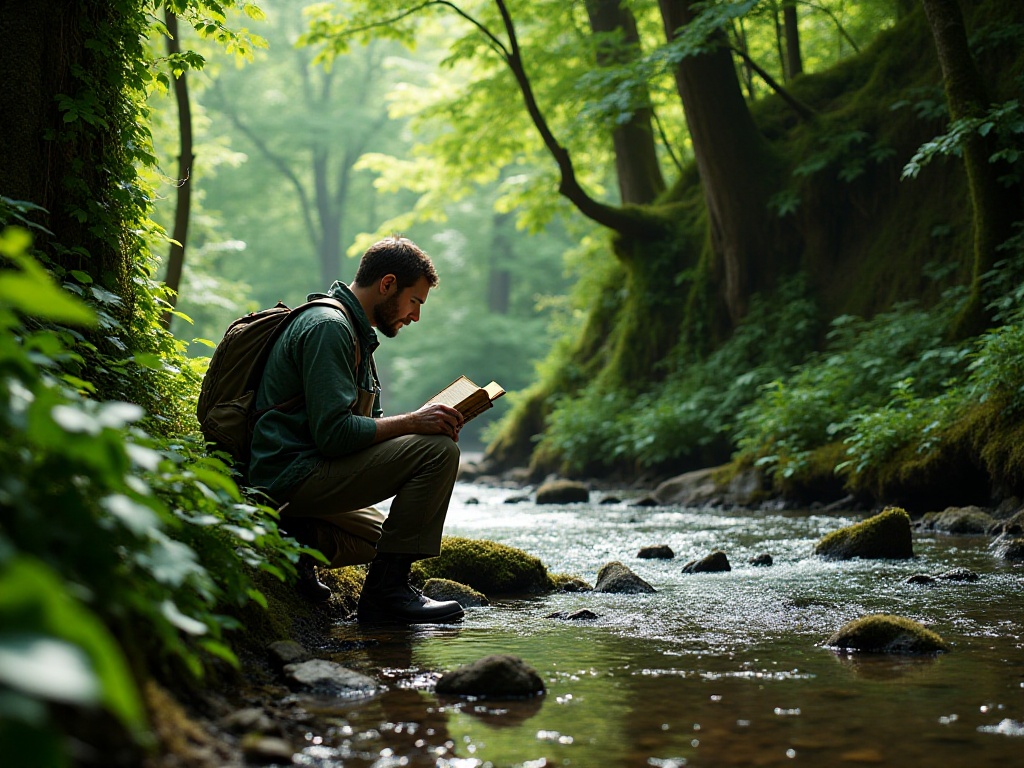
Key Equipment
When it comes to survival gear, the most crucial items are actually those seemingly ordinary but potentially life-saving small items.
First is the multi-tool knife, which I bought from a professional outdoor equipment store for 200 yuan. Though not large, this knife is very versatile: it has serrations for sawing wood, a sharp blade for cutting rope, and can be used for whittling wood and opening cans. Most importantly, its material is very sturdy, so you don't have to worry about it breaking. The instructor said that in the wilderness, a good knife can solve 80% of problems.
I prepared two fire-starting tools: a windproof lighter and a box of windproof matches, together costing less than 20 yuan. Some might think a lighter is enough, but I think matches are necessary as backup. If the lighter breaks or runs out of fuel, you can still use matches. Plus, these windproof matches are particularly effective, staying lit even in wind and rain.
I bought a professional mountaineering compass for 150 yuan. Many people might think phone navigation is enough, but in the wilderness, phone navigation isn't reliable. First, your phone might run out of battery, and second, there's often no signal in mountain areas. Moreover, phone navigation requires internet connection, and maps won't load without it. In comparison, a compass is much more reliable - no electricity needed, no network required, ready to use anytime.
The water filter was what I consider the most valuable piece of equipment, costing 300 yuan for a portable one. It works through multi-layer filtration, directly turning river or lake water into drinkable water. Our instructor told us that wilderness water sources cannot be drunk directly as they may contain bacteria and parasites. There have been hikers who got diarrhea for several days after drinking mountain spring water. With this water filter, I don't have to worry about water shortages.
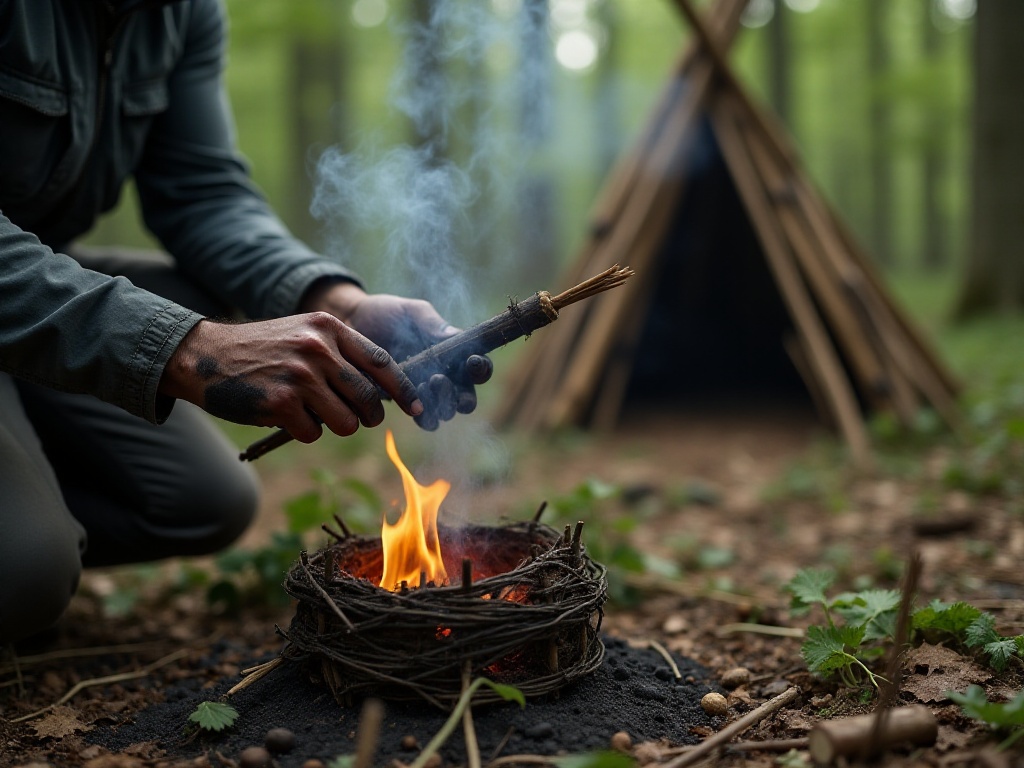
Experience Sharing
Through this training camp, I've summarized many practical experiences.
First, all equipment must consider waterproofing. Rain is the biggest concern in the wilderness, and wet equipment is troublesome. My approach is: choose water-resistant backpack material with a rain cover; select sleeping bags and tents with high waterproof ratings; put valuable items like phones and cameras in waterproof bags.
Second, try to choose multi-functional items. For example, I attached several meters of military parachute cord to my backpack's exterior. This rope is particularly strong and can be used for setting up tents, making stretchers, and could even save lives in emergencies. Also, my multi-tool knife combines over ten functions, saving lots of space.
Third, food selection should consider portability and calories. I usually bring compressed biscuits, chocolate, and nuts. These foods are small in volume, lightweight, but very high in calories. Chocolate can quickly replenish energy, especially when physically exhausted. Nuts are rich in protein and healthy fats, providing sustained energy.
Fourth, pay attention to equipment weight distribution. My current approach is: put heavy items close to the back of the backpack, making it more comfortable to carry. Light items and frequently used items go in the outer pockets for easy access.
Fifth, have backup plans. For example, besides a headlamp, I prepared a small flashlight in case the headlamp fails. Similarly, I carry matches in addition to a lighter. While these backup equipment add some weight, they might prove crucial in emergency situations.
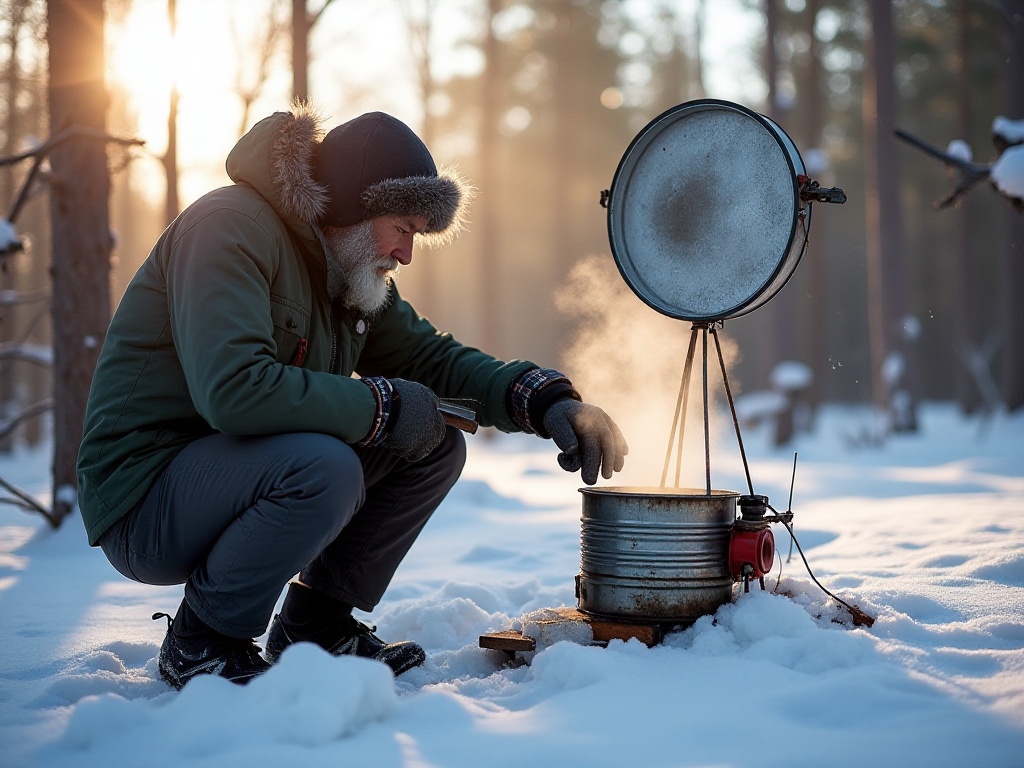
Field Testing
On the last day of training camp, our instructor arranged a wilderness survival test. The weather was particularly bad that day, with drizzling rain, temperature around 15 degrees, and some wind. Honestly, normally I would definitely choose to stay home in such weather. But since I was there, I had to face it bravely.
The test included: setting up camp in a designated area, making fire and cooking, direction identification, and other basic wilderness survival skills. Coincidentally, this adverse weather allowed me to fully appreciate the importance of proper equipment.
First was setting up camp. Due to rain, the ground was wet. Fortunately, my tent's bottom had good waterproofing, and with a moisture-proof pad, the inside wasn't affected at all. Some companions' tents had poor waterproofing and started leaking shortly after setup.
Then came fire-making. This part best demonstrated the importance of equipment. I quickly started a fire with my windproof lighter, and because I had waterproof fabric, the fire wasn't affected by rain. Some companions, perhaps to save money, bought regular lighters which couldn't light in the windy and rainy weather. They finally solved the problem using my backup matches.
The direction identification part was also interesting. Due to rain, phone navigation was useless. This is when my compass came in handy. Although visibility was low, with a compass in hand, there was no worry about getting lost.
Throughout the test, I not only completed all tasks successfully but also helped several companions with incomplete equipment. Honestly, I felt quite proud seeing my equipment help others.
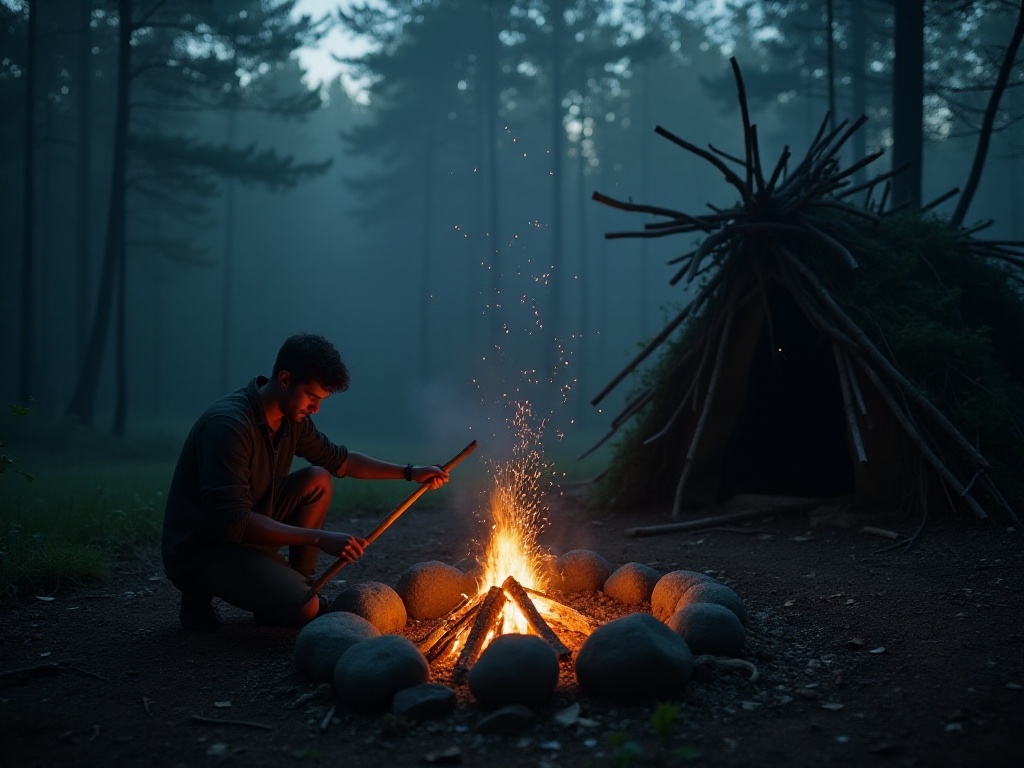
Conclusion
This set of equipment now sits in my storage room, ready for the next wilderness adventure. Truly, these 2000 yuan were well spent. This equipment not only makes outdoor life easier but could potentially save lives in crucial moments.
However, I suggest not buying all equipment at once. Start with the basic trio: backpack, tent, and sleeping bag, then gradually add other equipment as you gain experience. Everyone's equipment needs are different, choose based on your actual situation. For example, frequent hikers might need to pay special attention to equipment weight; those who like winter camping need to consider warmth performance more.
Through this experience, I deeply understand that proper equipment can indeed make wilderness survival safer and more comfortable. But even the best equipment requires knowing how to use it. So now I practice with my equipment every weekend, like setting up tents and using the compass, these basic skills. This way, when you really need to use them, you won't be flustered.
Actually, wilderness survival is both simple and complex. Simple because with complete equipment and basic skills, you can handle most situations. The difficult part is staying calm in various unexpected situations and properly using the equipment at hand. So I'm particularly grateful for the decision to attend the training camp, which not only taught me how to select and use equipment but more importantly cultivated my ability to respond to difficulties.
What equipment do you usually bring when you go camping? Welcome to share and discuss in the comments. Maybe your experience will help others!




